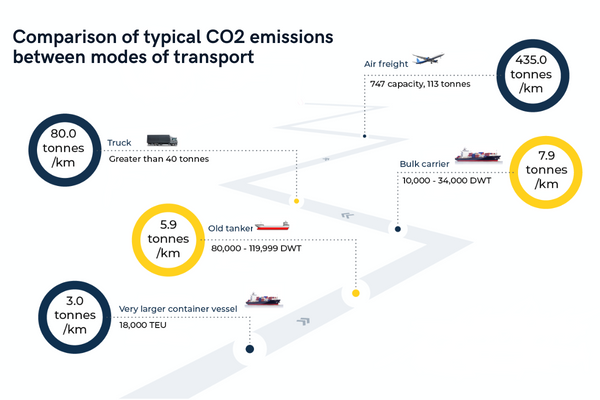The great sustainability debate has dominated the media in recent times, whether it’s political targets or personal missions, we are all asking ourselves: how can we be kinder to our planet?
Nevertheless, as the conversations evolve and consumers become more informed about the specifics of industrial eco-friendly efforts, businesses are faced with a strategic dilemma: how to promote sustainability as a key USP on a product level, while facing the carbon challenges of an established shipping network?
Enter the new WTA Group research report: “Reputational risk: carbon footprint of supply chains”.
A Branding Balancing Act
Homing in on brands where sustainability is a core pillar of their identity - the plant-based sector - this whitepaper investigates the reputational challenges posed by an international supply chain and the opportunities available to echo environmental values across the logistical side of your business.
Plant-based businesses have been at the heart of the conversation around staying sustainable, and with the vegan industry, predicted to be worth $37.45 billion by 2030, it's clear plant-based diets and lifestyles are here to stay. As such, with such vast growth potential on offer, vegan brands with an international reach need to be actively considering the carbon challenges of their supply chain to stay ahead of the curve. Consumers have commented that sustainability is a more prominent factor in decision making than even taste, so clearly this is a matter of great importance to buyers. Therefore, the brands with the most proactive approach to a decarbonising plan will almost surely win out in the end.
Aligning Logistics with ESG Strategies
The environmental impact logistics has is undeniable, with each mode of transport facing their own obstacles to being truly environmentally friendly.

It’s clear our industry is still a way away from a fully green supply chain being feasible, however there are growing acknowledgements and efforts to decarbonise.
So, while we may not be at the stage of a carbon-neutral international supply chain, there are opportunities to benefit from a global network, without compromising on brand values.
"In our industry, I think renewable energy initiatives are particularly exciting, but it isn't always about clean tech. Some solutions offered by think tanks can be implemented straight away and are relatively straightforward." - Rochelle Sommer, co-CEO, WTA Group
While progress in this field is not particularly fast, the decarbonisation conversation within logistics offers more and more opportunities to feel optimistic. Targets are being set by the major shipping lines, action plans released by leading economies in relation to aviation, and visibility of emissions becoming more of a pressing matter: our industry is on its way.
Specialists in finding the fresh approach
Understanding the particular logistical needs and challenges of businesses within the food sector is something our Food Team take pride in. Our team processes more than 20,000 food shipments a year, to 63 different countries across 6 continents and we are continually building out our expertise in this field, enhancing the service we offer.
Vegan produce is leading the world towards a more sustainable destination and at WTA we are immensely proud to support such creative and inspiring brands on this journey. This whitepaper aims to offer brands within this sector some food for thought on how it can be possible to have an international supply chain without compromising brand identity; so I hope you find it useful.

Alternatively, reach out to me below to answer any questions on your logistical needs as a plant-based food and drink exporter.






